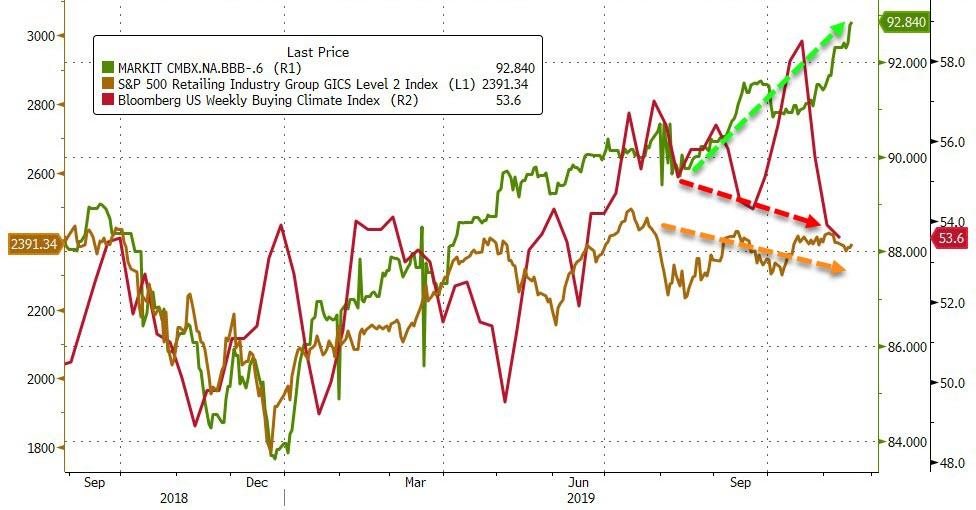The retail apocalypse has been absolutely devastating; approximately 12,000 stores are expected to or have already closed in 2019. This has prompted Fitch Ratings to downgrade some classes of notes in two commercial mortgage-backed securities (CMBS), creating concern about significant future losses originating from their exposure to shopping malls, reported International Financing Review (IFR).
The story behind the retail industry continues to be a troubling one.
Retailers have insurmountable debts, overexpanded with cheap money, private equity-ownership pressures, and are now facing changing consumer trends that have made e-commerce more popular than ever before.
As a result, many retailers are rapidly shrinking their footprint ahead of the next recession, or in some cases filing for bankruptcy to either restructure or completely liquidate all assets.
The rating agency understands these significant retail trends. It has decided on Monday to downgrade four classes of notes in the UBS-Barclays Commercial Mortgage Trust 2012-C2, and four classes of notes in Morgan Stanley Capital I Trust 2011-C2.
The UBS notes have loans with four shopping malls in Connecticut, Illinois, Louisiana, and South Carolina, representing 27% of the loan pool. It's likely the downgrades by Fitch are ahead of these shopping malls going bust and could mean severe losses are ahead for investors.
Morgan Stanley Capital I Trust 2011-C2 has loans tied to two shopping malls in Texas that represents 28.5% of the collateral pool, Fitch said.
The rating agency warned, "the ability of these loans to refinance at their scheduled April and June 2021 loan maturities" could be challenging for the mall loans in Morgan Stanley Capital I Trust 2011-C2.
Both CMBS deals have shopping malls anchored by department stores Sears, Dillard's, Macy's, and JCPenney, many of which are going out of business at record speed.
With consumers weakening and retail sales expected to slump into 2020, Fitch is getting ahead of the retail bust and warning investors that CMBS deals with heavy mall exposure could see significant losses ahead.
Notably, amid stagnant retail stock prices and a recent collapse in the buying-climate, CMBX prices have continued to zoom higher (especially since The Fed began NotQE).

Source: Bloomberg
The big question is simple - Is Fitch's warning today idiosyncratic to those tranches; or systemic to the CMBS market overall - signaling stocks and surveys maybe, right?
Commenti
Posta un commento